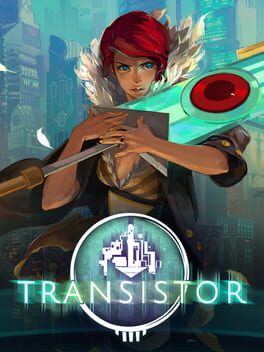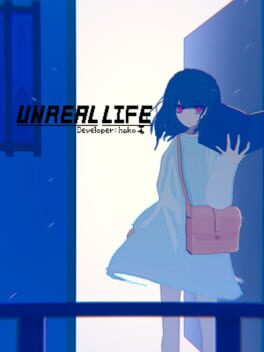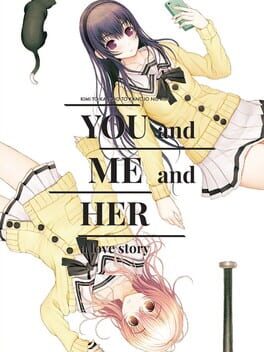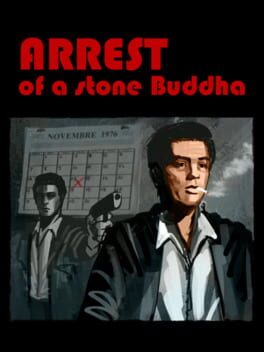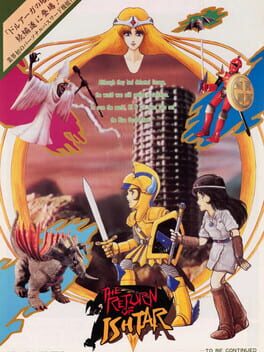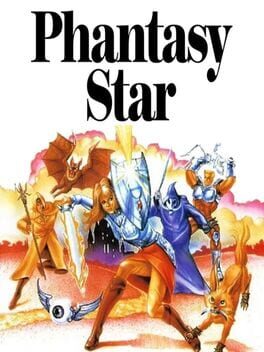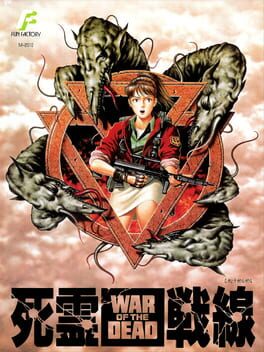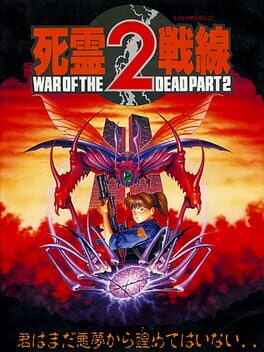priscusbutter
3 reviews liked by priscusbutter
Transistor
2014
killer soundtrack, incredible aesthetic, but I think the combat relying so heavily on .//turns and wowww framing Red killing herself as some kind of beautiful romantic sacrifice when not an hour ago spitting on Asher for doing the literal same thing fucking sucks.
3 stars best het love story ever told
3 stars best het love story ever told
Transistor
2014
Transistor
2014
Style versus substance used to be a major debate in the video game industry- which do you prioritize when you’re divvying resources to each of your departments? Does the arthouse division get a bigger shot in order to craft interesting visuals or do you hire a larger writing team to hone in on the mythus you want concocted?
As major game engines and larger talent pools have gotten more economical, I wonder if this still remains as potent an issue as it once did. When I reviewed Close to the Sun (https://www.backloggd.com/u/RedBackLoggd/review/464801/), I made a similar observation/question, and ultimately came to the conclusion that it isn’t as big a dichotomy in today’s day and age.
But what do I know, being an amateur critic? Without intimate experience inside a company, I can only postulate about the nuts and bolts that go into game development. Regardless, the reason I have begun this review on such a tangent is the contrast between Transistor’s aesthetic splendour and atrocious storytelling has genuinely left me mind-boggled. How can a game be so resplendent yet engage in such outdated scribal schemas?
What do I mean by this? You guys remember how, back in the days before voice acting, everything narrative-related had to be conveyed through text? Well, when you had a title that was particularly heavy on lore, it resulted in either essays worth of dialogue or (more commonly) large swaths of optional content you could dig through to find.
That latter tactic is still maintained, but rarely do you see post-2010 releases use it as an excuse to do the bare minimum in the base game, which is exactly what Transistor does. On the outset, you get a cyberpunk tale that dips its toes in the trappings of the genre, focusing on the machinations of a group of high-ranking government officials known as the Camerata. They’ve released a virus onto the city of Cloudbank that simultaneously corrupts the architecture and spawns malevolent robots, causing an evacuation. The sole person standing in the way? Red, a former lounge singer targeted by the cabal- her voice has been stolen, and the only way she’s getting it back is via a high-tech sword known as the Transistor.
The Transistor is more than just a weapon: it houses the soul of an unnamed man who saved Red’s life, and is capable of amazing feats like absorbing other spirits. But it also acts as a good transition point (no pun intended) to the kind of flawed storytelling you’ll consistently get in your 6+ hours: how did the Camerata even build it? What is it made of? Why was it haphazardly thrown at Red if it’s integral to their operations? How does it assimilate consciousnesses? Who was the man that was even killed? Why did everyone join the Camerata in their goal of purging Cloudbank? Why does Cloudbank even need this Atlas Shrugged revamp?
I’m sure there are answers in the game, and the reason I’m sure is because 99% of EVERY SINGLE PIECE OF PERTINENT INFORMATION is stored in supplementary data banks you can probe through Access Points strewn around the cosmopolis. Seriously, who thought this was a good idea? If you want to know ANYTHING beyond the vague ruminations of the Transistor, you’re going to have to digest paragraph after paragraph of exposition dump, unlocked via tokens called Functions (more on that below).
Oh, but it gets worse. Each Function’s biography isn’t divulged from the get-go; you need to modify them with additional ones to get the full story. And as there are literally over 30 of these, it is abysmal that the writers expected players to mix-and-match them tens of times just to experience the full scope of the cast and their impact on Cloudbank (which, lo and behold, exposes the events prior to the start of the game).
It shouldn’t come as a surprise that I didn’t bother rummaging through most of them. My philosophy is, if the developers don’t care enough about their tale to tell it properly, then why should I go above and beyond? I’m all for unconventional methods of storytelling, but this is either lazy or the result of a diminished budget for the writer’s table. It’s as though they only had two staff members- one to draft out the main game’s conversations, the other to handle all the discretionary descriptions from the terminals.
It’s a shame because there are a lot of interesting ideas here (or that I gleam to be here), from the whole brain in the vat approach of the psyche to the concept of public opinion literally impacting the ordonnance of a city. But you can’t get invested in any of it unless you put in the effort to find the one memoir that contains the relevant facts, and even then it won’t matter since the main narrative is constantly just pushing Red to the next beat without dwelling much on prior revelations.
The only non-mandatory readings I will praise are the news stations placed around Cloudbank. They reminded me a lot of the bulletin displays from the original Deus Ex, which depicted a third party’s (or state-influenced third party’s) reporting of current events, and it was just as interesting here to see how journalists would announce, describe, or speak about developing circumstances, and give their opinions on what the citizenry should do. They were short in length, numbered just enough in totality to not be platitudinous, and even provided Red the choice of responding to them, which would lead to some interesting words from the Transistor.
So, if most of the energy was put towards the graphics, do they make-up for such writing flaws? Well, I wouldn’t go that far, but my gosh, is Transistor gorgeous. Cloudbank is a metropolis drenched in fulgor- you’ve got your typical neon signposts burning on high, but also a number of other synthetic sources that bathe the cityscape with color. Not since Planet Alpha (https://www.backloggd.com/u/RedBackLoggd/review/279180/) have I played a video game that embraced the full scale of the visible spectrum: this is a society that operates on artificiality, rainbow illusions molded by the will of the people. Every pavement and edifice seems like it’s made of malleable smart glass, a variegated mesh of hard and soft light constructs bending to please the masses. At a time when most cyberpunk works opt for the grunge style of their roots, it was fascinating to see SuperGiant Games take a different approach; a techno-dystopia hiding its vice under manmade mirages.
Outside of your standard gameplay, you get some cutscenes seemingly modeled after French anime like Martin Mystery and Totally Spies! (side note, the buildings in both Blade Runner and Neuromancer were heavily influenced by French architecture, explaining the country’s continued sway on the genre), and these look good, with facial expressions in particular being vitalized on the canvas-esque backgrounds.
Voice acting is principally left to Logan Cunningham as the sentient cutlass, and he is truly superb. I don’t know how to describe it, but there’s something very nice about his elocution that makes him pleasant to listen to whenever he speaks. It’s not that he’s calming (although he certainly can be) so much as he’s fully conscientious about everything he’s saying (or about to) say. If you guys ever get a chance, check out a bodybuilder named Stan “The White Rhino” Efferding in interviews and you’ll get a sense of what I mean: some humans just have the ability to be very soothing to listen to.
His performance goes a long way towards carrying Transistor above the aforestated pitfalls of its story. You’re dealing with vague notions, underdeveloped themes, drunk moments, and even a cringey rushed love tale between the Transistor and Red, and yet somehow Cunningham makes it all bearable. He’s simultaneously brutally honest and gentle, like a morally-inverted HAL from 2001.
The other voice actors for the Camerata are decent, if a little too nerdy sounding (read- slightly nasally, upper voice registers). Red apparently has speaking moments attributable to an actress called Kristin Wilson, but I don’t recall hearing her speak- instead, it’s her singer, Ashley Barrett, who deserves recognition. A gifted chanteuse, significantly aided by the option to have her hum a song at the touch of a button.
Sound effects are meager in quantity. Enemy robots creak the same, most of your attacks contain a replicated echo, and, most disappointing of all, Red’s dragging of the Transistor produces no reverberation on the ground. Like seriously, you’d think you’d hear this slick scrape, like the abrade of Surtur’s rapier in Thor: Ragnarok.
With regards to music, this is one area where it’s going to come down to personal taste. I’m someone who firmly believes in electronica for a cyberpunk OST; SuperGiant and in-house composer Darren Korb, on the other hand, went for a soundtrack many have labeled as Jazz synthesizer. Objectively-speaking, it sounds great, but subjectively I didn’t think it suited the townscape around you. YMMV.
Finally, I can talk about the gameplay, which some have compared to Fallout 3’s VATS, but that I find to be more remindful of the stop-and-go system in BioWare titles. You walk around levels until you enter a combat zone, in which case you’re walled off and forced to defeat all the baddies. While you may clash with them in-real-time, you’re better off utilizing Transistor’s freeze frame wherein you grind the spatio-temporal continuum to a halt, enabling you to map out an attack scheme. This scheme is limited to a turn meter that drops depending on your movement and choice of strike, with stronger moves taking up more cap.
Overall it works, but can get repetitive given that battles are the only gameplay you have here (besides a single puzzle). Fans may counter that you’re given a lot of leeway for experimentation, and that combining this with the locking of bios behind the polymerization of Functions encourages players to engage in said experimentation. To reiterate, I don’t think most people will find the story or world that compelling to go through the hassle of trying out all these combos, but even if they did, your standard attacks will work 99% of the time. Yes, there are variations on drones (some can end your turn prematurely, others can dodge after being struck,etc…), however they don’t alter the fights in any vital way- you still destroy everyone by knocking their HP to zero, and so I just don’t see anyone deviating significantly from whatever strategy they find feasible.
That is, unless you get hurt. Rather than die, Transistor has an interesting dexterity interface wherein the full depletion of your constitution culminates in you losing access to your highest-consuming Function, forcing you to either live without it until its restored, or replace it with a substitute. I thought this was an interesting method of avoiding game overs, and certainly removed potential frustrations that would’ve arisen from mistakes.
Transistor is an ARPG, and so there is an experience system in place. I don’t think new levels raise your durability, but they do provide the option to increase your memory storage/slots for new mods, as well as open-up Limiters: special retrofittings that appreciate your exp. earnings in exchange for some combat degradation.
A training dimension periodically appears during your playthrough, giving you access to challenge rooms that necessitate you completing their mandates (i.e., survive, beat in a set time) whilst using preselected Function(s). They’re kind of cool, but wear out their welcome with the repetitive objectives each chamber contains.
Overall, as beautiful as Transistor was, I can’t quite recommend it at full price. A lot of people have gotten something from their runs, and considering the massive following SuperGiant Games has accumulated since the success of Hades, I imagine there will be more players seeking out the company’s past library. Opinions will vary of course, but the weakly-executed story and repetitious fighting weren’t entertaining for me.
As major game engines and larger talent pools have gotten more economical, I wonder if this still remains as potent an issue as it once did. When I reviewed Close to the Sun (https://www.backloggd.com/u/RedBackLoggd/review/464801/), I made a similar observation/question, and ultimately came to the conclusion that it isn’t as big a dichotomy in today’s day and age.
But what do I know, being an amateur critic? Without intimate experience inside a company, I can only postulate about the nuts and bolts that go into game development. Regardless, the reason I have begun this review on such a tangent is the contrast between Transistor’s aesthetic splendour and atrocious storytelling has genuinely left me mind-boggled. How can a game be so resplendent yet engage in such outdated scribal schemas?
What do I mean by this? You guys remember how, back in the days before voice acting, everything narrative-related had to be conveyed through text? Well, when you had a title that was particularly heavy on lore, it resulted in either essays worth of dialogue or (more commonly) large swaths of optional content you could dig through to find.
That latter tactic is still maintained, but rarely do you see post-2010 releases use it as an excuse to do the bare minimum in the base game, which is exactly what Transistor does. On the outset, you get a cyberpunk tale that dips its toes in the trappings of the genre, focusing on the machinations of a group of high-ranking government officials known as the Camerata. They’ve released a virus onto the city of Cloudbank that simultaneously corrupts the architecture and spawns malevolent robots, causing an evacuation. The sole person standing in the way? Red, a former lounge singer targeted by the cabal- her voice has been stolen, and the only way she’s getting it back is via a high-tech sword known as the Transistor.
The Transistor is more than just a weapon: it houses the soul of an unnamed man who saved Red’s life, and is capable of amazing feats like absorbing other spirits. But it also acts as a good transition point (no pun intended) to the kind of flawed storytelling you’ll consistently get in your 6+ hours: how did the Camerata even build it? What is it made of? Why was it haphazardly thrown at Red if it’s integral to their operations? How does it assimilate consciousnesses? Who was the man that was even killed? Why did everyone join the Camerata in their goal of purging Cloudbank? Why does Cloudbank even need this Atlas Shrugged revamp?
I’m sure there are answers in the game, and the reason I’m sure is because 99% of EVERY SINGLE PIECE OF PERTINENT INFORMATION is stored in supplementary data banks you can probe through Access Points strewn around the cosmopolis. Seriously, who thought this was a good idea? If you want to know ANYTHING beyond the vague ruminations of the Transistor, you’re going to have to digest paragraph after paragraph of exposition dump, unlocked via tokens called Functions (more on that below).
Oh, but it gets worse. Each Function’s biography isn’t divulged from the get-go; you need to modify them with additional ones to get the full story. And as there are literally over 30 of these, it is abysmal that the writers expected players to mix-and-match them tens of times just to experience the full scope of the cast and their impact on Cloudbank (which, lo and behold, exposes the events prior to the start of the game).
It shouldn’t come as a surprise that I didn’t bother rummaging through most of them. My philosophy is, if the developers don’t care enough about their tale to tell it properly, then why should I go above and beyond? I’m all for unconventional methods of storytelling, but this is either lazy or the result of a diminished budget for the writer’s table. It’s as though they only had two staff members- one to draft out the main game’s conversations, the other to handle all the discretionary descriptions from the terminals.
It’s a shame because there are a lot of interesting ideas here (or that I gleam to be here), from the whole brain in the vat approach of the psyche to the concept of public opinion literally impacting the ordonnance of a city. But you can’t get invested in any of it unless you put in the effort to find the one memoir that contains the relevant facts, and even then it won’t matter since the main narrative is constantly just pushing Red to the next beat without dwelling much on prior revelations.
The only non-mandatory readings I will praise are the news stations placed around Cloudbank. They reminded me a lot of the bulletin displays from the original Deus Ex, which depicted a third party’s (or state-influenced third party’s) reporting of current events, and it was just as interesting here to see how journalists would announce, describe, or speak about developing circumstances, and give their opinions on what the citizenry should do. They were short in length, numbered just enough in totality to not be platitudinous, and even provided Red the choice of responding to them, which would lead to some interesting words from the Transistor.
So, if most of the energy was put towards the graphics, do they make-up for such writing flaws? Well, I wouldn’t go that far, but my gosh, is Transistor gorgeous. Cloudbank is a metropolis drenched in fulgor- you’ve got your typical neon signposts burning on high, but also a number of other synthetic sources that bathe the cityscape with color. Not since Planet Alpha (https://www.backloggd.com/u/RedBackLoggd/review/279180/) have I played a video game that embraced the full scale of the visible spectrum: this is a society that operates on artificiality, rainbow illusions molded by the will of the people. Every pavement and edifice seems like it’s made of malleable smart glass, a variegated mesh of hard and soft light constructs bending to please the masses. At a time when most cyberpunk works opt for the grunge style of their roots, it was fascinating to see SuperGiant Games take a different approach; a techno-dystopia hiding its vice under manmade mirages.
Outside of your standard gameplay, you get some cutscenes seemingly modeled after French anime like Martin Mystery and Totally Spies! (side note, the buildings in both Blade Runner and Neuromancer were heavily influenced by French architecture, explaining the country’s continued sway on the genre), and these look good, with facial expressions in particular being vitalized on the canvas-esque backgrounds.
Voice acting is principally left to Logan Cunningham as the sentient cutlass, and he is truly superb. I don’t know how to describe it, but there’s something very nice about his elocution that makes him pleasant to listen to whenever he speaks. It’s not that he’s calming (although he certainly can be) so much as he’s fully conscientious about everything he’s saying (or about to) say. If you guys ever get a chance, check out a bodybuilder named Stan “The White Rhino” Efferding in interviews and you’ll get a sense of what I mean: some humans just have the ability to be very soothing to listen to.
His performance goes a long way towards carrying Transistor above the aforestated pitfalls of its story. You’re dealing with vague notions, underdeveloped themes, drunk moments, and even a cringey rushed love tale between the Transistor and Red, and yet somehow Cunningham makes it all bearable. He’s simultaneously brutally honest and gentle, like a morally-inverted HAL from 2001.
The other voice actors for the Camerata are decent, if a little too nerdy sounding (read- slightly nasally, upper voice registers). Red apparently has speaking moments attributable to an actress called Kristin Wilson, but I don’t recall hearing her speak- instead, it’s her singer, Ashley Barrett, who deserves recognition. A gifted chanteuse, significantly aided by the option to have her hum a song at the touch of a button.
Sound effects are meager in quantity. Enemy robots creak the same, most of your attacks contain a replicated echo, and, most disappointing of all, Red’s dragging of the Transistor produces no reverberation on the ground. Like seriously, you’d think you’d hear this slick scrape, like the abrade of Surtur’s rapier in Thor: Ragnarok.
With regards to music, this is one area where it’s going to come down to personal taste. I’m someone who firmly believes in electronica for a cyberpunk OST; SuperGiant and in-house composer Darren Korb, on the other hand, went for a soundtrack many have labeled as Jazz synthesizer. Objectively-speaking, it sounds great, but subjectively I didn’t think it suited the townscape around you. YMMV.
Finally, I can talk about the gameplay, which some have compared to Fallout 3’s VATS, but that I find to be more remindful of the stop-and-go system in BioWare titles. You walk around levels until you enter a combat zone, in which case you’re walled off and forced to defeat all the baddies. While you may clash with them in-real-time, you’re better off utilizing Transistor’s freeze frame wherein you grind the spatio-temporal continuum to a halt, enabling you to map out an attack scheme. This scheme is limited to a turn meter that drops depending on your movement and choice of strike, with stronger moves taking up more cap.
Overall it works, but can get repetitive given that battles are the only gameplay you have here (besides a single puzzle). Fans may counter that you’re given a lot of leeway for experimentation, and that combining this with the locking of bios behind the polymerization of Functions encourages players to engage in said experimentation. To reiterate, I don’t think most people will find the story or world that compelling to go through the hassle of trying out all these combos, but even if they did, your standard attacks will work 99% of the time. Yes, there are variations on drones (some can end your turn prematurely, others can dodge after being struck,etc…), however they don’t alter the fights in any vital way- you still destroy everyone by knocking their HP to zero, and so I just don’t see anyone deviating significantly from whatever strategy they find feasible.
That is, unless you get hurt. Rather than die, Transistor has an interesting dexterity interface wherein the full depletion of your constitution culminates in you losing access to your highest-consuming Function, forcing you to either live without it until its restored, or replace it with a substitute. I thought this was an interesting method of avoiding game overs, and certainly removed potential frustrations that would’ve arisen from mistakes.
Transistor is an ARPG, and so there is an experience system in place. I don’t think new levels raise your durability, but they do provide the option to increase your memory storage/slots for new mods, as well as open-up Limiters: special retrofittings that appreciate your exp. earnings in exchange for some combat degradation.
A training dimension periodically appears during your playthrough, giving you access to challenge rooms that necessitate you completing their mandates (i.e., survive, beat in a set time) whilst using preselected Function(s). They’re kind of cool, but wear out their welcome with the repetitive objectives each chamber contains.
Overall, as beautiful as Transistor was, I can’t quite recommend it at full price. A lot of people have gotten something from their runs, and considering the massive following SuperGiant Games has accumulated since the success of Hades, I imagine there will be more players seeking out the company’s past library. Opinions will vary of course, but the weakly-executed story and repetitious fighting weren’t entertaining for me.
